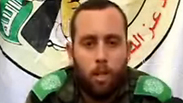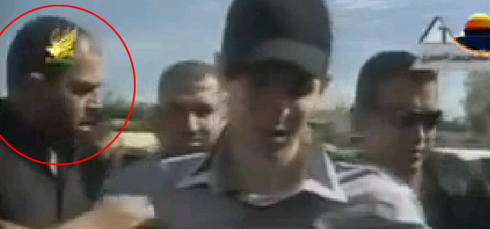
Israel approved the call-up of 10,000 IDF reservists on Thursday, two days after the collapse of negotiations that had seemed likely to pave the way to an agreement to end more than a month of fighting with Hamas in Gaza.
The decision was reached during a conference call between members of the Cabinet.
The IDF called up 86,000 reservist soldiers in the first weeks of Operation Protective Edge, which began in early July. Many were sent home, however, after it appeared that an agreement to end the fighting was in reach.
Both Israel and Hamas appear to be ratcheting up the belligerence, in rhetoric and in action, since the talks collapsed on Tuesday after Hamas breached an ongoing ceasefire by firing rockets at southern Israel. Israel retaliated with an attack on a Gaza home believed to be the location of Hamas military leader Mohammed Deif. His fate remains unclear, while his wife and children were killed in the attack.
Hamas says that Deif, one of Israel's most-wanted terrorists, had not been hurt in the attack, while an Israeli intelligence official reportedly told Fox News on Wednesday that he had indeed been killed in the strike.
Overnight Wednesday, the IAF struck a house in Gaza, killing three senior Hamas commanders, including two who had been directly involved in the abduction of IDF Corporal Gilad Shalit in 2006.
Hamas's military wing confirmed Thursday that Israel had killed its Rafah Division commander Raed al-Attar, Southern Division commander Mohammed Abu Shmallah and Rafah Division senior commander Mohammed Barhoum in an overnight strike.
Meanwhile, Hamas and other Palestinian factions have resumed almost continuous rocket fire on southern Israel, repeatedly targeting border communities and population centers, sending Israelis once again scrambling for bomb shelters after days of relative calm.
In a televised press conference Wednesday night, Prime Minister Benjamin Netanyahu said that the IDF would keep fighting in Gaza until calm had been restored to the rocket-battered south. He declined to comment directly on Deif's death, but said that every Hamas leader was a legitimate target, and that none were immune.
On Thursday, he paid tribute to the "exceptional" work of the Shin Bet security service and the IDF for the killing of the three Hamas men.
"The exceptional intelligence provided by the Shin Bet thanks to its professional and diligent work, together with the precise operational capabilities of the IDF, allows us to take the decision to launch an operation to strike at the Hamas leadership who planned deadly terror attacks against Israeli citizens," Netanyahu said.
The prime minister also expressed his own and the country's gratitude for the work carried by the security forces in fighting terrorism.
"On the behalf of Israel's citizens and myself, I thank the Shin Bet operatives, the heads of the intelligence and operational branches, headed by organization director Yoram Cohen," Netanyahu said. "An operation of this nature joins the long list of terror attacks that Hamas planned - and were foiled."
Netanyahu also hailed the cooperation between the two branches of the defense establishment, who he said were "working shoulder to shoulder during Operation Protective Edge."
Al-Attar and Shmallah were both directly involved in the Shalit abduction, in a 2006 cross-border attack on an IDF base near Gaza. Shalit was returned to Israel in 2011 in a prisoner swap, and al-Attar can be clearly seen in footage of the exchange.
In a meeting with US Congressman Darrell Issa, Netanyahu stressed the importance of putting a united front against fundamentalist Islam.
"The radical Islamist terrorism threatens the whole world now. It threatens Israel, the US, moderate Arab countries, Europe, everyone. We're facing the same Islamist terror network and we have to fight it together," Netanyahu told Issa.
"Hamas is ISIS and ISIS is Hamas. You've witnessed the atrocious beheading of James Foley, we've witnessed the atrocious murder of the three teens, a murder Hamas admitted to committing. These are the branches of the same poisonous tree."
Attila Somfalvi contributed to this report

















